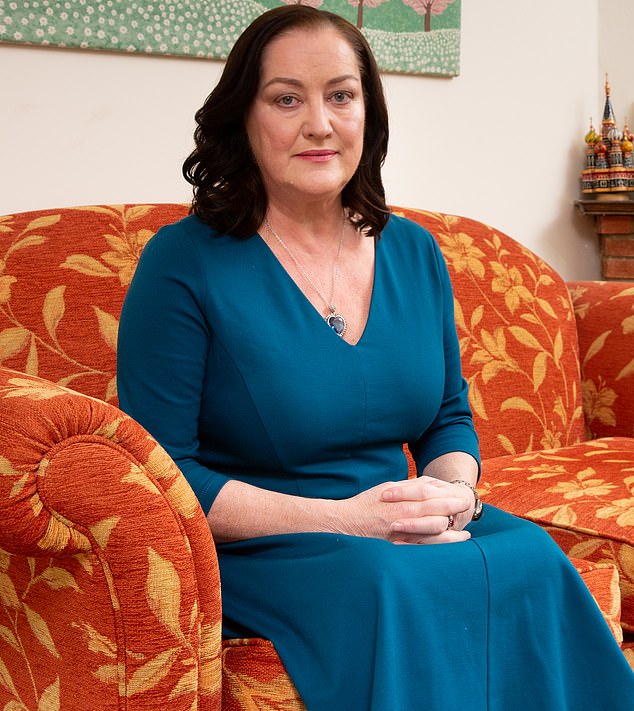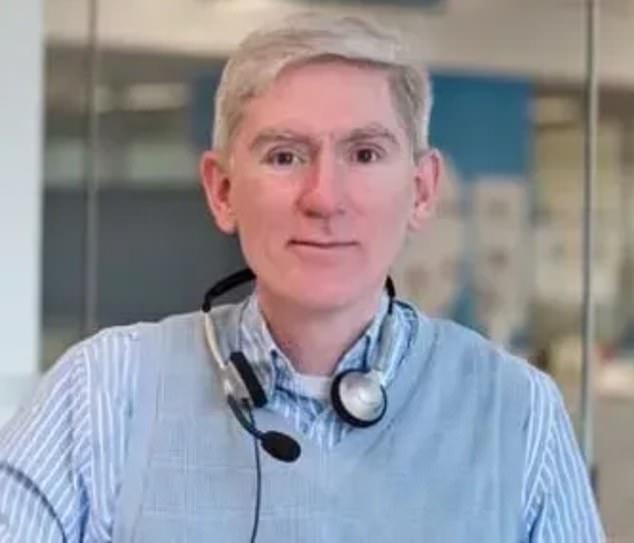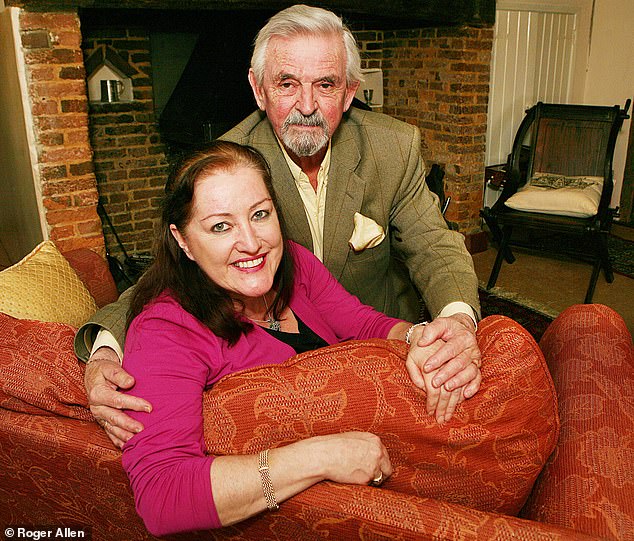When my friend Jenna was diagnosed with cancer, she knew she would lose her breasts and her hair. What she didn’t expect was that she would lose a close friend as well.
“I told Emma (a mutual friend) about my diagnosis and she was in shock, quickly finished her glass of white wine, said ‘I can’t do this again’ and ran out of the house,” says Jenna, 55.
‘She texted me later that night saying, ‘I’m so sorry, but I’ve been through all this with my mom and my aunt and I just can’t get over it.’
“I felt so sad because I had been with her for two years through a very complicated and bitter divorce, and now she didn’t want to know anything about me. It was horrible. I felt like a leper.”
Cancer is a very divisive thing – when you have that diagnosis, people are either thoughtful or thoughtless, kind or cruel, brave or cowardly, which is what happened when my husband Harry was diagnosed with terminal liver cancer in 2012, at the age of 71.
Mary Gold and her husband Harry, who was diagnosed with terminal liver cancer at the age of 71.
Good friends helped me a lot, but I no longer want to have contact with those who weren’t. One “friend” patted Harry on the back and said, “Liver cancer, eh? Better have a big gin and tonic! It won’t do you any harm, will it? Ha ha!” When Harry was seriously ill, in his last days, another (ex) friend said to me, “It will be a great relief for you when this is all over, won’t it?” Well, it won’t really be.
I was reminded of all this recently when a friend was diagnosed with prostate cancer and I thought, “I have to do the right thing. I didn’t want to be one of those people who cross the street when they see him.”
This was something that had happened to Harry and me in Canterbury, near where we lived. These people had seen us, we had seen them, but they still got as far away as they physically could.
I realized that I wanted to be kind, humane and helpful. I didn’t want to be a coward in the face of cancer.
The stark reality is that about one in two of us will get cancer, so it’s almost a given that it will affect everyone’s circle of loved ones. To be better prepared to deal with it, we need to carefully consider how we approach it.
According to Dr Anna Janssen, a clinical psychologist and spokesperson for the British Psychological Society, behaving strangely in the presence of illness reflects the human instinct to avoid a threat to our survival. It is not unique to cancer, but applies to many diseases, including motor neurone disease and Parkinson’s.
As he explains: “We don’t like to be confronted with anything that reminds us of our own mortality. We find uncertainty challenging, especially these days when we have so much technology, like artificial intelligence, that gives us an illusion of certainty. It’s much harder to deal with the idea of ’I don’t know what’s going to happen here.'”

Mary says the friends and family who listened and offered practical help when Harry had cancer were her greatest support.
‘Being told someone has cancer can also remind us of illnesses and losses we’ve experienced in our own lives that we don’t want to relive. But we have to acknowledge that and separate our own experiences from what’s happening to our friend.
“We are also afraid of saying or doing the wrong thing, so people hesitate or stay silent, rather than cause offence at an already difficult time. But remember that when a serious illness arises, there is already change and loss for that sick person, and they don’t want to lose the relationship they have with you.”
Dr. Janssen recommends starting with simple gestures: a hug, a phone call, a text message or a card.
“Stay the friend you’ve always been,” he says. “Listen and let the person who is sick guide you through what they need.”
In our case, the friends and family who listened to us and offered practical help when Harry had cancer were the biggest support and we are so grateful for everything they offered us. They brought us delicious ready meals from M&S, took our eight-year-old daughter to the zoo and the beach and helped us clean the house.
These acts of kindness made a huge difference in Harry’s final days and ensured that ours never became a house of sadness. When our little girl was in bed, we sobbed for a while, but acts of compassion meant that we almost always had something to look forward to. My stepdaughters paid for my spa stay and another friend gave us a voucher for Harry’s favourite Indian restaurant.
While it’s one thing to avoid a cancer patient you know, what I also didn’t like were the people who cocked their heads to the side and made weird faces (cartoon sympathy is very annoying, as is rubbing someone’s back in a circular motion). There were also people who talked non-stop about themselves, which was almost a default mechanism, or who talked about relatives who had had cancer and died from it. Don’t do that!
According to Martin Ledwick, chief information nurse at Cancer Research UK, it is alarmingly common to be inconsiderate about cancer.
Mr Ledwick, who runs the charity’s helpline, says crossing the road to avoid cancer patients and their relatives is often a knee-jerk reaction because people don’t know what to say or how to support someone with the disease.

According to Martin Ledwick, chief information nurse at Cancer Research UK, it is alarmingly common to be inconsiderate about cancer.
“Most of us are good people and want to help anyone we care about, but when someone tells us about a cancer diagnosis, we often go into reassurance mode and say ‘I’m sure everything will be okay,’ when clearly we don’t really know,” she says.
-So that’s the only thing you shouldn’t do.
‘A better response is to simply listen and say, “That’s really hard.”
‘Don’t try to find a solution because his life may take a different direction. Tell him optimistic things, but don’t assume he will get better because he may not. Just make him feel that someone cares about him.
“The person with cancer just wants to be heard and that’s what they need. The key is to follow their lead: make realistic offers and don’t let your friend down. Offer to drive them to the hospital, help with shopping and babysit and make sure you follow through on what you’ve offered. Ask yourself what your skills are and what you can commit to.”
If you’re considering offering practical things, such as buying someone a casserole, Mr. Ledwick recommends checking with them first to see if it’s okay and never forcing an offer.
“There’s a lot to be said for just being around that person, chatting, being their friend, offering them a movie night,” he says.
‘Don’t beat yourself up if you’re rejected and don’t feel worthless. You’ve offered yourself. Someone going through chemotherapy will feel bad and often look bad and may want to hide away. They may just want to be left alone for a while, but don’t forget to check back in from time to time to see how things are.’
The resentment I felt toward some people when my husband was ill was natural, Mr Lewdwick says, but for my own well-being I should have put it behind me. He says: “If someone says or does something wrong, like jaywalking, don’t get angry because it’s bad for you. Focus on the friends who help you.”
My dear husband died in 2014, two years after his diagnosis, but I like to think we made the most of that time: boat trips along the Royal Military Canal in Hythe, wonderful meals in Gurkha restaurants in Kent where we live, and very happy Sunday lunches with dear friends and family who were no cowards in the face of cancer and who did not cross the road when we needed them most.
Cancerresearchuk.org

